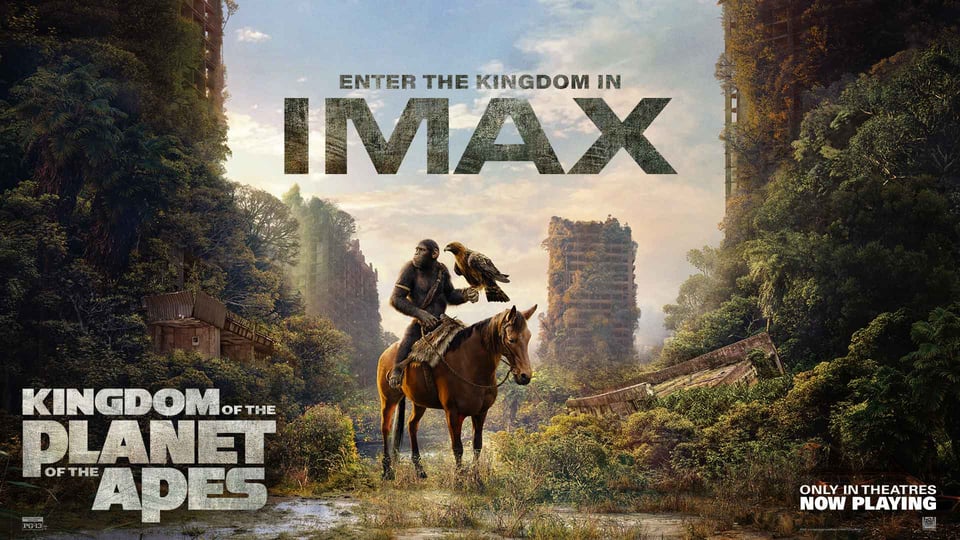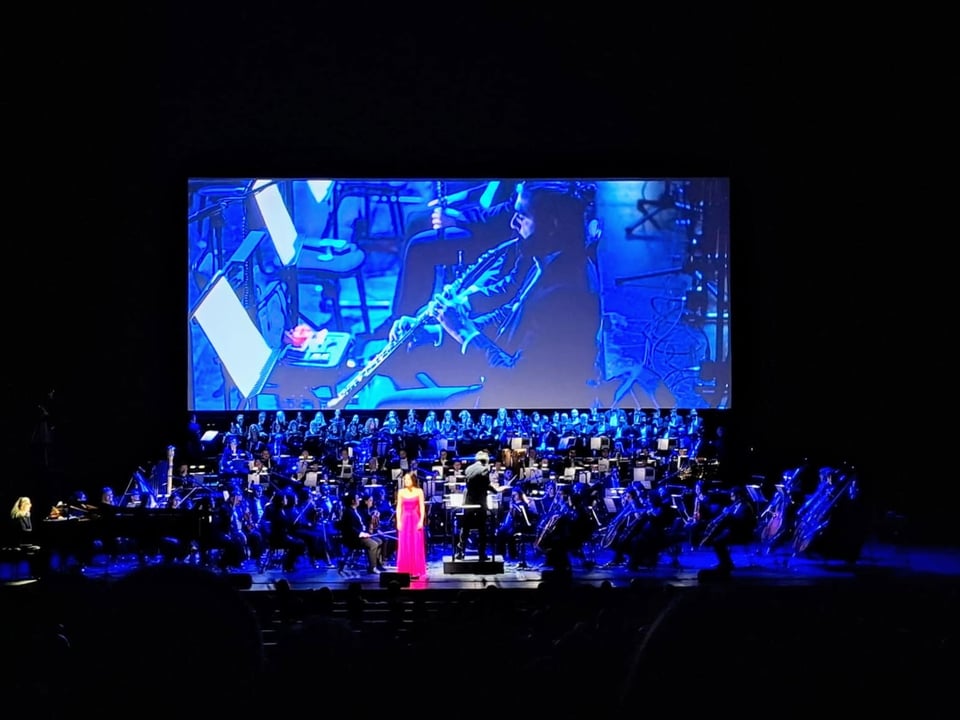The Terrible Movie Everyone Seems to Love

This weekend, I experienced two cultural events at opposite ends of the quality spectrum. An awe inspiring concert celebration of Ennio Morricone at Dubai Opera and the awe inspiringly bad Kingdom of the Planet of the Apes.
After work on Friday, Hope and I headed up to Dubai. The show was that evening and I'll delve into that towards the end of the newsletter. Then, on Saturday, we found ourselves with some rare, unplanned, unstructured time. After spending a lazy morning by the hotel pool, we decided to catch a movie. We settled on Kingdom of the Planet of the Apes, heretofore Kingdom for the sake of brevity. Despite knowing it wasn't high-brow cinema and having low expectations, we decided to give it a go. My expectations clearly weren’t low enough. It is arguably the worst movie I have sat through in my 44 years of living. I only say arguably because Zack Snyder's 2011 film Sucker Punch exists.
The movie is a continuation of the Apes saga, but also a relaunch into a new chapter of the Planet of the Apes. It’s functionally a simian version of A New Hope, which was largely retold in The Force Awakens, and as such, cribs heavily from the Skywalker Saga.
In the film, an ape named “Noa” serves as the stand-in for Luke and/or Rey. He and his family are from a group of tree dwelling apes called Eagle Clan. Yes, the CGI apes capture and train CGI eagles. Yes, I know that’s absurd.
After Noa’s village is sacked by masked and hooded ape raiders, he goes on a quest to find his loved ones who have been taken by the marauders. He is guided on his journey by Raka, a wise Obi Wan-like figure, who wants Noa to learn the ways of the Force. Sorry, that’s not right. I meant the original teachings of Caesar—the main character from the prior films—who we see cremated and mourned during the film’s opening. You see, the apes have strayed from the ways of Caesar and lost the way of life he established for their people generations ago. Along the way Noa and Raka encounter a human, who they befriend, and then together they seek justice against the film’s big bad, named, wait for it: Proximus Caesar.
If that sounds like dreck to you, you are correct!
Hope and I have a routine of sitting down together to talk about movies afterward over a drink or in this case, noodles. We sat there for a while, mocking the film's wandering plot, non-interesting twists, and general derivativeness: a reboot sequel of a remake that largely rips off Star Wars? No way.
The film ends rather cynical, in my eyes, with a tease that hints to an Empire Strikes Back-esque sequel. Jamelle Bouie wrote that he liked how the film asks whether two groups with mutual grievances can co-exist in the same space? I saw someone else compare the film to the current situation in Gaza and honestly that take makes me want to put my head in the oven.
Afterwards, I logged on to Letterboxed (for the unfamiliar, think of it as Goodreads for movies) to see that the film has mostly positive reviews: 3.5 stars on more than 59k reviews. Later, that evening I saw that Chris Stuckmann, an online film critic whose work I enjoy, had given the film a mostly glowing review, see below.
I thought I was taking crazy pills—this movie is atrocious.
But I think this is what getting old feels like. The kids are really into stuff and think it’s deep and laced with meaning. You find yourself outside of the pop culture circle taking shots about how every song is a rip off of whatever you listened to twenty or thirty years ago. If hating films like this means I’m getting old, so be it.
Honoring Ennio Morricone

Ennio Morricone was one of the greatest of his craft ever to live. He is famous for the music he composed for various Spaghetti Westerns directed by Sergio Leone: The Good the Bad the Ugly, Once Upon a Time in the West, A Fistful of Dollars, etc.
Old film heads feel about him the way millennials feel about Hans Zimmer and John Williams but I think over his career he lapped both. Tragically, he passed at the age of 91 in 2020, although it wasn't due to COVID. In memoriam, Andrea, his son and collaborator, is on tour conducting the Armenian State symphony orchestra and a full choir, playing a retrospective of his catalogue.
The show was billed to last two hours but went on for three. It might have been the most amazing theater experience I've had in my life. I've seen Broadway shows; I've seen off-Broadway plays; I've seen ballets; I recently saw a breathtaking Cirque du Soleil performance; but nothing made me feel the feels this performance did.
The orchestra played three different encores and closed the show out playing Ecstasy of Gold, arguably Morricone's most famous piece to rapturous applause. I wept, I clapped, I smiled at the first notes of the harmonica (watch the clip below) from Once Upon a Time in the West—the show made me feel things.
It made me think about the importance of live cultural performances. To sit in a space, not a phone in sight for three hours, and to experience over 150 people collectively play some of the most famous and amazing songs in cinema history is an experience that's essential and hard to describe.
I also think that seeing this show on Friday impacted how I experienced the movie on Saturday. Going from an authentic performance of expert musicians to watching CGI gorillas with CGI eagles on their arms fighting against other CGI gorillas with the stakes being “setting up the subsequent film in the franchise?” That ain’t it.
I'm going to make it a point to attend more live performances and I suggest if this show comes to your neck of the woods, you must go.
Next week in the newsletter, I plan on returning to my conversation about Chip War and talking a bit about Naomi Klein's Doppelganger, if I can finish it this week before the Abu Dhabi Public Library yoinks it back.
I'll see you then.